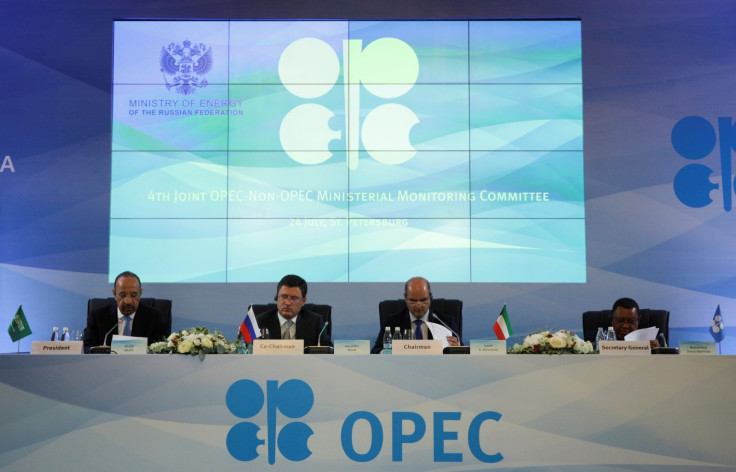Opec grows impatient with errant oil producers not complying with cuts
Cartel has asked for a cap on Nigerian output, and called on several members to boost compliance.

Opec is growing increasingly impatient with oil producers who are not fulfilling their end of a deal to extend oil production cuts to March 2018, reached in concert with several non-Opec producers.
On 25 May, Opec agreed with 10 non-OPEC producers led by Russia to cut oil output by a combined 1.8 million barrels per day (bpd), from January 2017 until the end of March 2018, in a bid to support the oil price.
However, as both Brent and West Texas Intermediate benchmarks continue to languish in the $40-50 per barrel range, compliance with the cuts – which has been on a strong footing – has turned weaker.
The United Arab Emirates, Iraq and Venezuela all pumped more than they agreed in June. Libya and Nigeria are already exempt from Opec cuts, and Ecuador very publicly broke ranks with the cartel last week and upped its production.
But the Opec and non-Opec Joint Ministerial Monitoring Committee (JMMC) meeting in St Petersburg, Russia said on Monday (24 July) the compliance of participants must improve.
The JMMC also said Nigeria would join the deal by capping or even cutting its output as well although the exemption for Libya would continue. However, no time-frame for when this would happen was specified.
Nigeria's production pattern would be tracked for stabilisation in the 1.7 million bpd range over the coming weeks, said the Russia and Saudi Arabia-led JMMC.
Alongside Saudi Arabia and non-Opec Russia, the committee includes Kuwait, Venezuela and Algeria - all Opec members, and Oman, another non-Opec participant.
Saudi Energy Minister Khalid al-Falih said global inventories had fallen by 90 million barrels, but were still about 250 million barrels above the five-year average for advanced economies.
"We must acknowledge that the market has turned bearish with several key factors driving these sentiments. Some countries continue to lag [on compliance with cuts] which is a concern we must address head on.
"Exports have now become the key matrix to financial markets and we need to find a way to reconcile credible exports data with production data," Al-Falih added.
He noted further that the JMMC had spoken to those who were lagging without naming the countries, and said they had pledged to boost compliance. Unless an extraordinary meeting is scheduled, Opec is next scheduled to meet on 30 November in at its secretariat in Vienna, Austria.
© Copyright IBTimes 2025. All rights reserved.






















